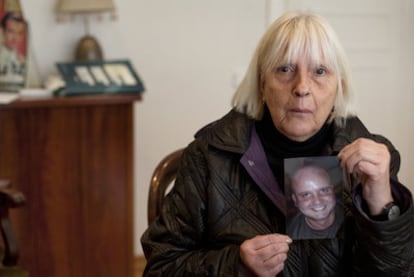"My son should be alive today, but they let him die on his own"
Bereaved family accuses elite Barcelona clinic of negligence after man succumbs to heart condition while waiting for treatment
Pere Ramos Barril, 40, died two years ago in complete "abandonment" at an elite Barcelona hospital that touts itself as a center of reference in the field of cardiovascular disease, according to his relatives. At a time when several cases of alleged negligence in the cash-starved public healthcare sector have grabbed headlines, the family of Ramos Barril says it feels cheated by their experience at a private clinic.
Doctors diagnosed Ramos with arrhythmia and were fully aware that his heart could stop any minute, yet they allegedly failed to apply the necessary treatment. Death came to him in solitude, after maintaining an agonizing telephone conversation with his sister. By the time hospital workers acted, it was too late. The patient was found dead on the floor of his room.
Two years after his demise, the family's lawsuit has reached a Barcelona court. Ramos' relatives are certain that Pere received deficient medical assistance and want 152,336 euros in damages. Their claim is backed by an expert report that underscores the fact that the clinic has all the necessary equipment and means to treat this kind of problem. The report adds: "The assistance given to Mr Ramos Barril was inadequate and insufficient with respect to his clinical needs."
The hospital has declined to make any comment.
The death occurred on December 10, 2009, when Ramos Barril was admitted into the emergency room at Clínica Sant Jordi with heart arrhythmia. The patient weighed 150 kilograms. After running some tests he was kept under observation, and because the irregular heartbeats continued, he was treated with a cardioverter-defibrillator until his heart reacted to the electric stimulus. On December 12, Ramos Barril was taken to a private room.
Desperate call
On December 14, however, new arrhythmias set in. His doctor decided that cardioversion would not be performed until the next day, and the patient was kept alone in the room. The expert report says that the most "prudent" thing would have been to apply the treatment immediately, or at least monitor the patient closely.
It was then that Ramos telephoned his sister and had a "dramatic conversation" with her, according to the lawsuit. During the 10 minutes that they talked, "she heard him cry and make sounds that she later associated with the moments prior to death." She immediately phoned the clinic to alert workers about her brother's condition, and later called again, only to be told that the patient was not answering the phone. After insisting, she was told that her brother was being treated. But it was not true. It was several minutes after that when doctors walked into his room and found him lying dead on the floor.
"They let my son die; if they'd treated him right, he'd be alive today," says Dolors Barril, 69. "I thought he was in good hands, but now I see he wasn't."

Tu suscripción se está usando en otro dispositivo
¿Quieres añadir otro usuario a tu suscripción?
Si continúas leyendo en este dispositivo, no se podrá leer en el otro.
FlechaTu suscripción se está usando en otro dispositivo y solo puedes acceder a EL PAÍS desde un dispositivo a la vez.
Si quieres compartir tu cuenta, cambia tu suscripción a la modalidad Premium, así podrás añadir otro usuario. Cada uno accederá con su propia cuenta de email, lo que os permitirá personalizar vuestra experiencia en EL PAÍS.
¿Tienes una suscripción de empresa? Accede aquí para contratar más cuentas.
En el caso de no saber quién está usando tu cuenta, te recomendamos cambiar tu contraseña aquí.
Si decides continuar compartiendo tu cuenta, este mensaje se mostrará en tu dispositivo y en el de la otra persona que está usando tu cuenta de forma indefinida, afectando a tu experiencia de lectura. Puedes consultar aquí los términos y condiciones de la suscripción digital.








































